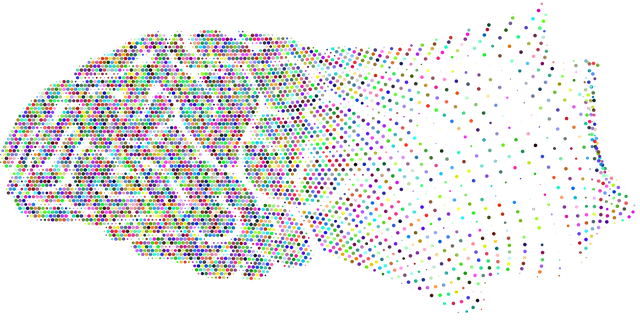Understanding Mental Health Data is crucial for effective therapy strategies, particularly in treating alcohol abuse. Through diverse collection methods like patient surveys, clinical assessments, and electronic health records, demographically inclusive data capture mental health experiences accurately. Standardized tools ensure comparability and reliability. Post-collection, raw data undergoes meticulous preparation for statistical analysis. Machine learning algorithms reveal hidden trends, enabling personalized Therapy for Alcohol Abuse tailored to demographics and co-occurring disorders. Interpretations guide therapists in identifying triggers, success factors, and beneficial techniques like CBT or motivational interviewing. Findings can be shared via popular media to promote self-care routines and mental wellness.
Mental health data analysis is a powerful tool in understanding complex behaviors, with significant implications for treatment strategies. This article explores the process of analyzing and interpreting data related to alcohol abuse, offering insights into effective therapy approaches. We begin by examining the collection and preparation of mental health data, delving into advanced techniques that reveal patterns of alcohol misuse. Subsequently, we discuss how these findings can guide therapists in tailoring treatments for better patient outcomes, particularly focusing on therapy for alcohol abuse.
- Understanding Mental Health Data: Collection and Preparation
- Advanced Techniques for Analyzing Alcohol Abuse Patterns
- Interpreting Findings: Informing Therapy Strategies
Understanding Mental Health Data: Collection and Preparation

Understanding Mental Health Data is a critical first step in any analysis process. Collecting data involves various methods such as patient surveys, clinical assessments, and electronic health records. It’s essential to ensure that these sources are diverse and inclusive to capture a comprehensive view of mental health experiences across different demographics. Accurate and consistent data collection requires standardized tools and protocols to guarantee comparability and reliability.
Once collected, raw data needs thorough preparation for analysis. This includes cleaning the data to remove errors or inconsistencies, handling missing values appropriately, and transforming it into formats suitable for various statistical techniques. For instance, in examining Therapy for Alcohol Abuse, preparational steps might involve categorizing patient outcomes related to mood management and resilience building. Such meticulous data preparation facilitates meaningful interpretation and informed decision-making in mental health research and treatment planning, ultimately contributing to the development of inner strength.
Advanced Techniques for Analyzing Alcohol Abuse Patterns

In the realm of mental health data analysis, advanced techniques are reshaping our understanding of alcohol abuse patterns. By leveraging machine learning algorithms and sophisticated statistical models, researchers can now uncover intricate trends and correlations that were previously elusive. These methods enable a more nuanced view of factors contributing to alcohol misuse, potentially guiding more personalized therapy for alcohol abuse. For instance, data mining can identify specific demographics or individuals with co-occurring disorders who may require tailored interventions, enhancing the effectiveness of treatment plans.
Moreover, integrating these advanced techniques with focus on positive thinking and self-care routine development for better mental health offers a holistic approach to addressing alcohol abuse. By analyzing not just the severity of drinking patterns but also the underlying psychological factors and coping mechanisms, professionals can empower individuals to cultivate resilience and implement anxiety relief strategies. This dual approach—combining advanced data analysis with personalized self-care—promises to revolutionize treatment outcomes, fostering lasting recovery and improved mental well-being.
Interpreting Findings: Informing Therapy Strategies

Interpreting data from mental health studies is a critical step in tailoring effective therapy strategies. By carefully analyzing trends and patterns within the collected information, researchers and therapists can gain valuable insights into what works best for different individuals struggling with various mental health conditions. For instance, in the context of alcohol abuse, data might reveal specific triggers that lead to relapse, such as social situations or stress levels. This knowledge enables therapists to design targeted interventions, incorporating strategies like cognitive-behavioral therapy (CBT) or motivational interviewing, which can be adapted to address these identified triggers effectively.
The process involves not only identifying problem areas but also uncovering potential success factors. For example, certain therapeutic techniques or support systems might prove particularly beneficial for improving mental wellness. These findings can be disseminated through popular media like the Mental Wellness Podcast Series Production, inspiring self-care routines and encouraging individuals to embrace Mind Over Matter principles. By translating data into actionable insights, therapists can personalize care, enhancing the chances of positive outcomes in therapy for alcohol abuse and other mental health challenges.
Mental health data analysis is a powerful tool in understanding complex issues like alcohol abuse. By employing advanced techniques, we can uncover meaningful patterns and insights. Through meticulous interpretation, these findings guide therapy strategies, ultimately enhancing our ability to provide effective treatment for alcohol abuse disorders. Integrating data-driven approaches ensures tailored and targeted interventions, promising better outcomes for those seeking therapy.














